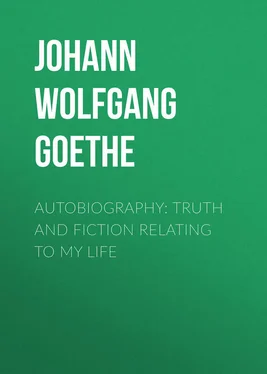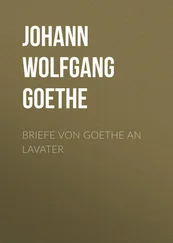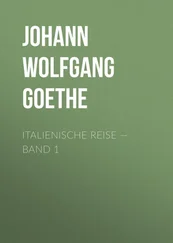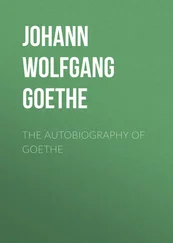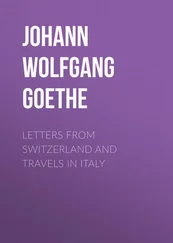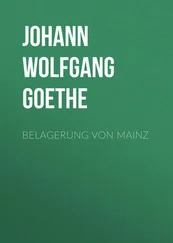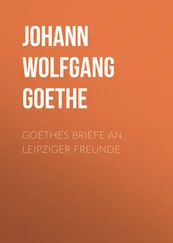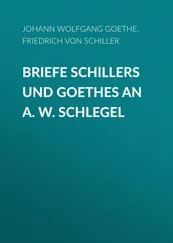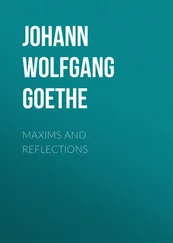Johann von Goethe - Autobiography - Truth and Fiction Relating to My Life
Здесь есть возможность читать онлайн «Johann von Goethe - Autobiography - Truth and Fiction Relating to My Life» — ознакомительный отрывок электронной книги совершенно бесплатно, а после прочтения отрывка купить полную версию. В некоторых случаях можно слушать аудио, скачать через торрент в формате fb2 и присутствует краткое содержание. Жанр: foreign_antique, foreign_prose, на английском языке. Описание произведения, (предисловие) а так же отзывы посетителей доступны на портале библиотеки ЛибКат.
- Название:Autobiography: Truth and Fiction Relating to My Life
- Автор:
- Жанр:
- Год:неизвестен
- ISBN:нет данных
- Рейтинг книги:5 / 5. Голосов: 1
-
Избранное:Добавить в избранное
- Отзывы:
-
Ваша оценка:
- 100
- 1
- 2
- 3
- 4
- 5
Autobiography: Truth and Fiction Relating to My Life: краткое содержание, описание и аннотация
Предлагаем к чтению аннотацию, описание, краткое содержание или предисловие (зависит от того, что написал сам автор книги «Autobiography: Truth and Fiction Relating to My Life»). Если вы не нашли необходимую информацию о книге — напишите в комментариях, мы постараемся отыскать её.
Autobiography: Truth and Fiction Relating to My Life — читать онлайн ознакомительный отрывок
Ниже представлен текст книги, разбитый по страницам. Система сохранения места последней прочитанной страницы, позволяет с удобством читать онлайн бесплатно книгу «Autobiography: Truth and Fiction Relating to My Life», без необходимости каждый раз заново искать на чём Вы остановились. Поставьте закладку, и сможете в любой момент перейти на страницу, на которой закончили чтение.
Интервал:
Закладка:
The Poet, says Schiller, is a citizen not only of his country, but of his time. Whatever occupies and interests men in general, will interest him still more. That nameless Unrest, the blind struggle of a soul in bondage, that high, sad, longing Discontent, which was agitating every bosom, had driven Goethe almost to despair. All felt it; he alone could give it voice. And here lies the secret of his popularity; in his deep, susceptive heart, he felt a thousand times more keenly what every one was feeling; with the creative gift which belonged to him as a poet, he bodied it forth into visible shape, gave it a local habitation and a name; and so made himself the spokesman of his generation. /Werter/ is but the cry of that dim, rooted pain, under which all thoughtful men of a certain age were languishing: it paints the misery, it passionately utters the complaint; and heart and voice, all over Europe, loudly and at once respond to it. True, it prescribes no remedy; for that was a far different, far harder enterprise, to which other years and a higher culture were required; but even this utterance of the pain, even this little, for the present, is ardently grasped at, and with eager sympathy appropriated in every bosom. If Byron's life-weariness, his moody melancholy, and mad stormful indignation, borne on the tones of a wild and quite artless melody, could pierce so deep into many a British heart, now that the whole matter is no longer new, – is indeed old and trite, – we may judge with what vehement acceptance this /Werter/ must have been welcomed, coming as it did like a voice from unknown regions; the first thrilling peal of that impassioned dirge, which, in country after country, men's ears have listened to, till they were deaf to all else. For /Werter/ infusing itself into the core and whole spirit of Literature, gave birth to a race of Sentimentalists, who have raged and wailed in every part of the world, till better light dawned on them, or at worst, exhausted Nature laid herself to sleep, and it was discovered that lamenting was an unproductive labour. These funereal choristers, in Germany a loud, haggard, tumultuous, as well as tearful class, were named the /Kraftmänner/ or Power-men; but have all long since, like sick children, cried themselves to rest. Byron was our English Sentimentalist and Power-man; the strongest of his kind in Europe; the wildest, the gloomiest, and it may be hoped the last. For what good is it to 'whine, put finger i' the eye, and sob,' in such a case? Still more, to snarl and snap in malignant wise, 'like dog distract, or monkey sick?' Why should we quarrel with our existence, here as it lies before us, our field and inheritance, to make or mar, for better or for worse; in which, too, so many noblest men have, even from the beginning, warring with the very evils we war with, both made and been what will be venerated to all time?
A wide and everyway most important interval divides /Werter/, with its sceptical philosophy and 'hypochondriacal crotchets,' from Goethe's next Novel, /Wilhelm Meister's Apprenticeship/, published some twenty years afterwards. This work belongs, in all senses, to the second and sounder period of Goethe's life, and may indeed serve as the fullest, if perhaps not the purest, impress of it; being written with due forethought, at various times, during a period of no less than ten years. Considered as a piece of Art, there were much to be said on /Meister/; all which, however, lies beyond our present purpose. We are here looking at the work chiefly as a document for the writer's history; and in this point of view, it certainly seems, as contrasted with its more popular precursor, to deserve our best attention: for the problem which had been stated in /Werter/, with despair of its solution, is here solved. The lofty enthusiasm, which, wandering wildly over the universe, found no resting-place, has here reached its appointed home; and lives in harmony with what long appeared to threaten it with annihilation. Anarchy has now become Peace; the once gloomy and perturbed spirit is now serene, cheerfully vigorous, and rich in good fruits. Neither, which is most important of all, has this Peace been attained by a surrender to Necessity, or any compact with Delusion; a seeming blessing, such as years and dispiritment will of themselves bring to most men, and which is indeed no blessing, since even continued battle is better than destruction or captivity; and peace of this sort is like that of Galgacus's Romans, who 'called it peace when they had made a desert.' Here the ardent high-aspiring youth has grown into the calmest man, yet with increase and not loss of ardour, and with aspirations higher as well as clearer. For he has conquered his unbelief; the Ideal has been built on the Actual; no longer floats vaguely in darkness and regions of dreams, but rests in light, on the firm ground of human interest and business, as in its true scene, on its true basis.
It is wonderful to see with, what softness the scepticism of Jarno, the commercial spirit of Werner, the reposing polished manhood of Lothario and the Uncle, the unearthly enthusiasm of the Harper, the gay animal vivacity of Philina, the mystic, ethereal, almost spiritual nature of Mignon, are blended together in this work; how justice is done to each, how each lives freely in his proper element, in his proper form; and how, as Wilhelm himself, the mild-hearted, all-hoping, all-believing Wilhelm, struggles forward towards his world of Art through these curiously complected influences, all this unites itself into a multifarious, yet so harmonious Whole; as into a clear poetic mirror, where man's life and business in this age, his passions and purposes, the highest equally with the lowest, are imaged back to us in beautiful significance. Poetry and Prose are no longer at variance; for the poet's eyes are opened; he sees the changes of many-colored existence, and sees the loveliness and deep purport which lies hidden under the very meanest of them; hidden to the vulgar sight, but clear to the poet's; because the 'open secret' is no longer a secret to him, and he knows that the Universe is /full/ of goodness; that whatever has being has beauty.
Apart from its literary merits or demerits, such is the temper of mind we trace in Goethe's /Meister/, and, more or less expressly exhibited, in all his later works. We reckon it a rare phenomenon, this temper; and worthy, in our times, if it do exist, of best study from all inquiring men. How has such a temper been attained in this so lofty and impetuous mind, once too, dark, desolate and full of doubt, more than any other? How may we, each of us in his several sphere, attain it, or strengthen it, for ourselves? These are questions, this last is a question, in which no one is unconcerned.
To answer these questions, to begin the answer of them, would lead us very far beyond our present limits. It is not, as we believe, without long, sedulous study, without learning much and unlearning much, that, for any man, the answer of such questions is even to be hoped. Meanwhile, as regards Goethe, there is one feature of the business, which, to us, throws considerable light on his moral persuasions, and will not, in investigating the secret of them, be overlooked. We allude to the spirit in which he cultivates his Art; the noble, disinterested, almost religious love with which he looks on Art in general, and strives towards it as towards the sure, highest, nay only good.
For a man of Goethe's talent to write many such pieces of rhetoric, setting forth the dignity of poets, and their innate independence on external circumstances, could be no very hard task; accordingly, we find such sentiments again and again expressed, sometimes with still more gracefulness, still clearer emphasis, in his various writings. But to adopt these sentiments into his sober practical persuasion; in any measure to feel and believe that such was still, and must always be, the high vocation of the poet; on this ground of universal humanity, of ancient and now almost forgotten nobleness, to take his stand, even in these trivial, jeering, withered, unbelieving days; and through all their complex, dispiriting, mean, yet tumultuous influences, to 'make his light shine before them,' that it might beautify even our 'rag- gathering age' with some beams of that mild, divine splendour, which had long left us, the very possibility of which was denied; heartily and in earnest to meditate all this, was no common proceeding; to bring it into practice, especially in such a life as his has been, was among the highest and hardest enterprises which any man whatever could engage in. We reckon this a greater novelty, than all the novelties which as a mere writer he ever put forth, whether for praise or censure. We have taken it upon us to say that if such is, in any sense, the state of the case with regard to Goethe, he deserves not mere approval as a pleasing poet and sweet singer; but deep, grateful study, observance, imitation, as a Moralist and Philosopher. If there be any /probability/ that such is the state of the case, we cannot but reckon it a matter well worthy of being inquired into. And it is for this only that we are here pleading and arguing. Meister is the mature product of the first genius of our times; and must, one would think, be different, in various respects, from the immature products of geniuses who are far from the first, and whose works spring from the brain in as many weeks as Goethe's cost him years.
Читать дальшеИнтервал:
Закладка:
Похожие книги на «Autobiography: Truth and Fiction Relating to My Life»
Представляем Вашему вниманию похожие книги на «Autobiography: Truth and Fiction Relating to My Life» списком для выбора. Мы отобрали схожую по названию и смыслу литературу в надежде предоставить читателям больше вариантов отыскать новые, интересные, ещё непрочитанные произведения.
Обсуждение, отзывы о книге «Autobiography: Truth and Fiction Relating to My Life» и просто собственные мнения читателей. Оставьте ваши комментарии, напишите, что Вы думаете о произведении, его смысле или главных героях. Укажите что конкретно понравилось, а что нет, и почему Вы так считаете.
